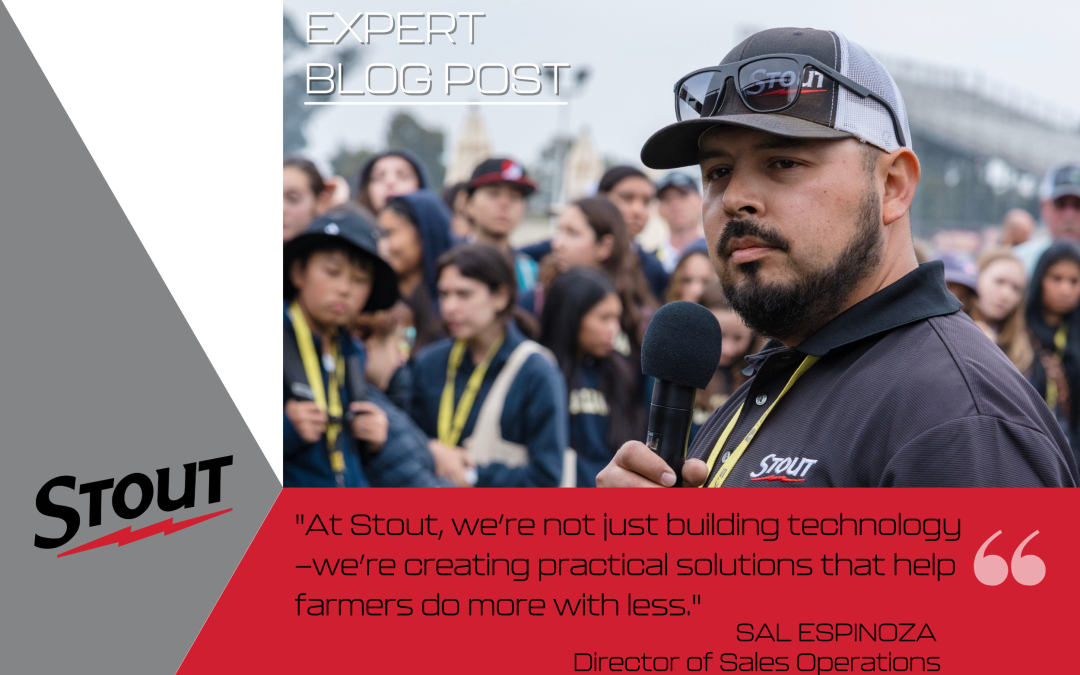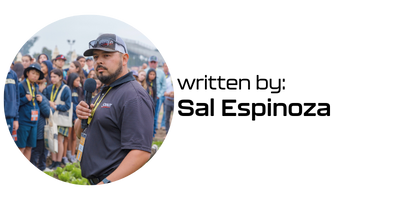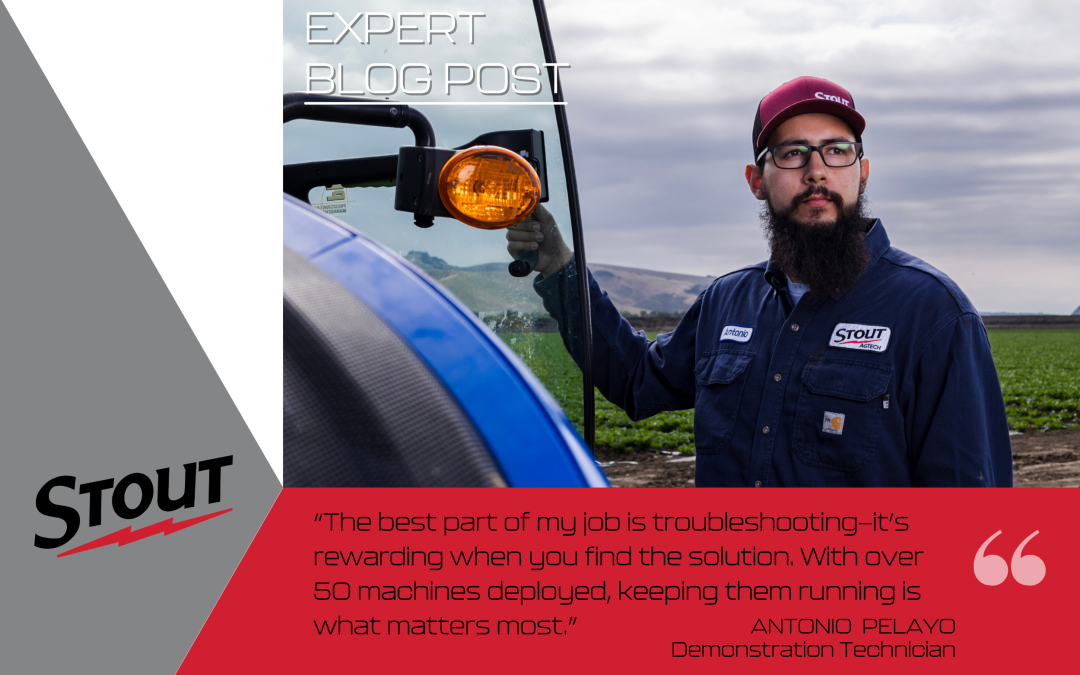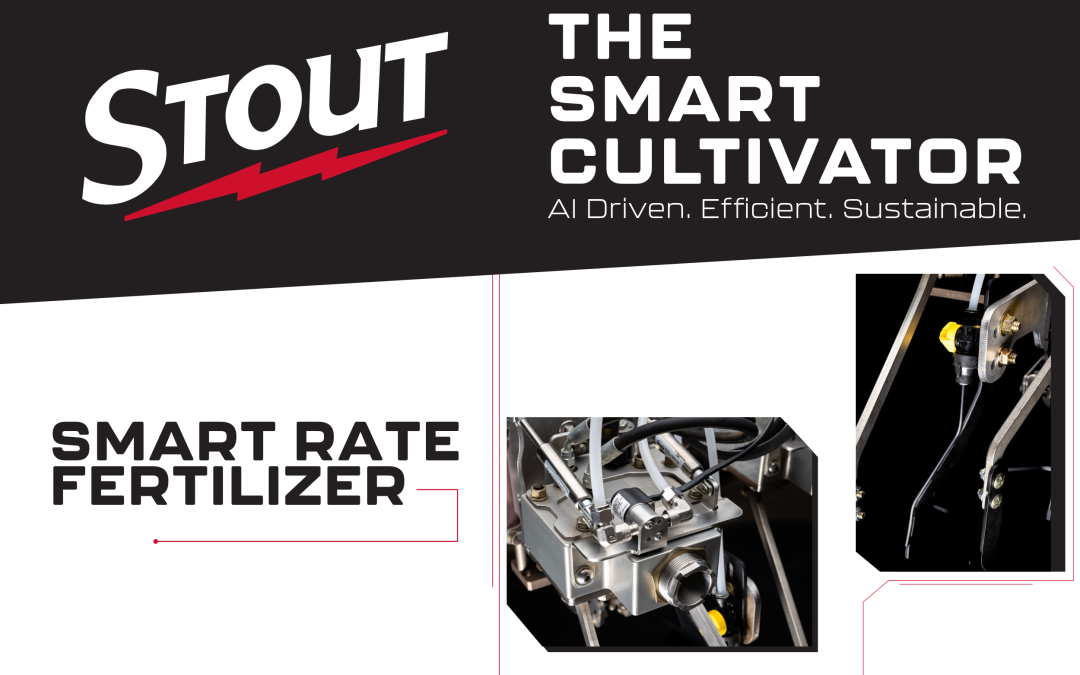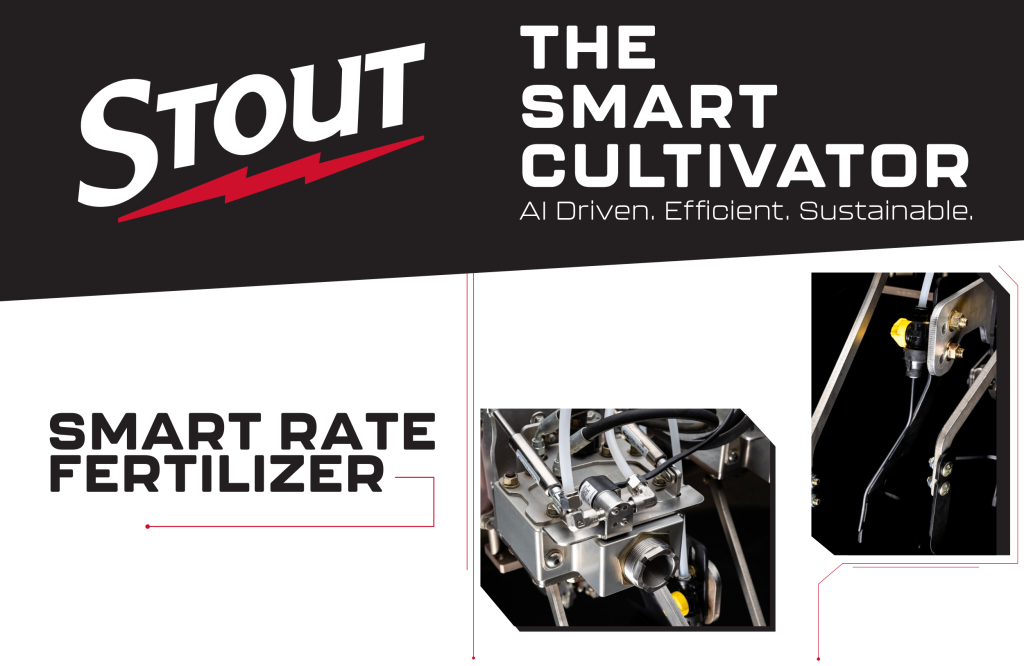Ag Tech, Automation, and the Future of Farming with Gustavo Dominguez
I’ve worked in agriculture since I was 18, but my background is in mechanics and electrical work. I originally set out to find a job in mechanical repair when I stumbled upon the Ag Tech industry by accident. I joined a company that worked on automated farming equipment, and from there, I became more intrigued by how automation and autonomous systems were shaping the future of agriculture. It was an unexpected path, but one that led me to where I am today at Stout.
I first saw Stout’s Smart Cultivator in action while I was working for another company. What impressed me was how simple it was to operate—just press start and go. In contrast, the equipment I worked with at the time required extensive calibration and back-end adjustments before it could run properly. That ease of use was what initially attracted me to Stout. Eventually, I applied for a position, and when the opportunity arose, I joined the team.
As a Service & Production Technician, my day varies based on what machines come in for servicing. We receive work orders that outline what needs to be inspected or repaired. If I’m working on a machine from the previous day, I continue troubleshooting it. If a new unit arrives, I run through a detailed checklist to identify potential issues and ensure it’s running at peak performance.
Customer support is also a key part of my role. When growers reach out with issues, I assess the problem and help troubleshoot it remotely whenever possible. One thing I’ve learned is to never assume the issue upfront. Instead, I take the time to investigate first before giving an answer. That way, I can provide the most accurate diagnosis without jumping to conclusions.
From my experience, the biggest challenge growers face when adopting new Ag Tech is fear—fear of change, fear of technology, and fear of the unknown. Many growers have been using the same equipment and methods for years, and learning a new system can be daunting. In reality, many operational issues stem from driver error, rather than the technology itself. Some operators pick it up quickly, while others take longer to transition.
At Stout, we follow a thorough checklist to ensure every machine operates at its best in the field. This checklist is based on real-world experiences and allows us to proactively address potential issues before they become problems for customers. Many of us have worked with these machines long enough that we’ve memorized what to look for, but we still follow a structured process to maintain quality and reliability.
One of the most challenging aspects of my role has been working with Smart Powered Hydraulics (SPH) and the Stout Rate Fertilizer (SRF). Installing these systems on different machines presents a unique set of challenges that require a combination of mechanical and electrical expertise. At first, these installations were complex, but over time, they’ve become second nature with enough practice and repetition.
I don’t think Ag Tech will ever reach a point where machines are built and serviced entirely by robots. There will always be a need for skilled workers to maintain, repair, and improve these systems. The industry is shifting toward a more technical workforce, where hands-on technicians will play a crucial role in keeping automated equipment running efficiently. As Ag Tech continues to develop, I see an increased demand for specialized skills and new infrastructure to support this growing and evolving sector.
For those looking to enter the Ag Tech field, my advice is simple: be ready to move fast. This industry is constantly evolving, and staying adaptable is key. The more you learn about mechanics, electronics, and automation, the better prepared you’ll be for the opportunities ahead.

About Gustavo
Gustavo Dominguez is a Service & Production Technician at Stout, where he specializes in maintaining and troubleshooting automated farming equipment. With a background in mechanics and electrical work, he transitioned into Ag Tech after seeing the potential of automation to transform farming operations. Passionate about innovation, Gustavo is dedicated to helping growers adopt new technology with confidence while ensuring Stout’s Smart Cultivator and other systems operate at peak performance.
About Stout
Stout is at the forefront of agricultural innovation, specializing in precision implements and AI-driven solutions that enhance efficiency and productivity for growers. Committed to pushing the boundaries of agricultural technology, Stout continues to lead the way in developing advanced machinery for the farming community.

